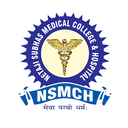Diploma in Emergency Care Technology
OR
Prepared by Docthub Courses Team ∣
Last updated on 17 Jun 2025
Overview
The Diploma in Emergency Care Technology course provides an opportunity to students and graduates in establishing their career in the field of accident and emergency care. The course duration is vary from 1 year to 2 years, depending on institute and syllabus. After completing this course, the individual can get a job opportunities as a Emergency Medical Technician, Ambulance Technician or Paramedic in a hospital or ambulance service company.

Table of Content
What is a Diploma in Emergency Care Technology?
The Diploma in Emergency Care Technology is a paramedical diploma program with an emphasis on the diagnosis and treatment of critically injured or ill patients. It equips students with the skills necessary to serve in emergency rooms, ambulances, and trauma centers to enable them to provide immediate medical attention.
Highlights
| Particulars | Details |
| Course Name | Diploma in Emergency Care Technology |
| Course Type | Diploma |
| Duration | 1-2 years (Varies according to institution) |
| Eligibility | 10+2 (Science stream is preferred) |
| Admission Process | Merit-based selection; Some institutions conduct entrance exams or interviews |
| Fees | INR 20,000 - INR 1,50,000 (Varies according to institution) |
| Colleges in India | AIIMS Paramedical College, Delhi Manipal Academy of Higher Education, Karnataka Christian Medical College (CMC), Vellore Apollo Institute of Hospital Management and Allied Sciences Rajiv Gandhi University of Health Sciences, Karnataka |
| Job Roles | Emergency Medical Technician (EMT), Trauma Care Assistant, Ambulance Paramedic, Emergency Room Assistant, Disaster Response Technician |
Eligibility
The candidates should fulfill the following eligibility criteria:
- Completion of 10+2 from a recognized board (Science stream is preferred)
- Certain institutions demand Biology as a subject
- Must fulfill the age and physical fitness criteria specified by the respective institution
Fees
The fee structure is between INR 20,000 to INR 1,50,000 per annum, depending on the institution.
Who Should Take a Diploma in Emergency Care Technology?
This course is best suited for those who:
- Are enthusiastic about emergency medical services
- Can function in high-pressure scenarios and make decisions at lightning speed
- Want to work in hospitals, ambulances, or trauma care facilities
- Want a career in paramedical and healthcare services
Why Opt for a Diploma in Emergency Care Technology?
- High Demand: The demand for emergency medical professionals only increases with rising accidents and medical emergencies.
- Career Development: Career prospects in various healthcare settings, such as hospitals, ambulances, and disaster response units.
- Life-Saving Techniques: The curriculum includes practical exposure to life-saving skills.
- Advanced Studies: Postgraduates can undertake advanced certifications and bachelor's in paramedical sciences.
Diploma in Emergency Care Technology Entrance Exams
Admission by most colleges is on the basis of merit, though there are some with entrance exams and interviews. Standard entrance exams include:
- State-level paramedical entrance tests
- Institution-specific entrance examinations
Admission Process
- Check eligibility requirements and apply offline or online.
- Entrance examinations or interviews may be conducted by some institutions.
- Merit-based selection is the main method.
- Submit documents for verification as required.
Diploma in Emergency Care Technology Syllabus
| Year/Semester | Core Topics Covered |
| Semester 1 | Fundamentals of Human Anatomy and Physiology – Introduction to body structure, organ functions, and essential physiological processes. Basics of Emergency Medicine – Principles of emergency response, recognizing critical conditions, and primary care techniques. Cardiopulmonary Resuscitation (CPR) and First Aid – Life-saving techniques, first aid procedures, and handling medical emergencies. Patient Assessment and Emergency Procedures – Methods for evaluating patient conditions and immediate medical interventions. Medical Ethics and Professionalism – Ethical considerations, patient rights, and professional conduct in emergency care.
|
| Semester 2 | Advanced Trauma and Critical Care Management – Handling severe injuries, fractures, burns, and life-threatening conditions. Emergency Pharmacology – Safe administration of medications in emergency situations, including dosages and contraindications. Disaster and Mass Casualty Management – Protocols for responding to large-scale emergencies and disaster scenarios. Ambulance Operations and Equipment Handling – Effective use of ambulance equipment and protocols for patient transportation. Internship and Practical Training – Hands-on experience in hospitals, ambulances, and trauma centers to refine emergency response skills. |
Best Colleges Providing Diploma in Emergency Care Technology
- AIIMS Paramedical College, Delhi
- Manipal Academy of Higher Education, Karnataka
- Christian Medical College (CMC), Vellore
- Apollo Institute of Hospital Management and Allied Sciences
- Rajiv Gandhi University of Health Sciences, Karnataka
Career Prospects After Diploma in Emergency Care Technology
Graduates can look for jobs in:
- Hospitals (Emergency & Trauma Units)
- Ambulance Services
- Disaster Relief Agencies
- Fire and Rescue Units
- Military and Defense Medical Departments
Options for Further Studies
- Bachelor's in Emergency Medical Technology
- Bachelor's in Paramedical Science
- Trauma Care, Disaster Management, and Critical Care Specialized Certifications
Career Options after the Diploma Completion
- Emergency Medical Technician (EMT)
- Trauma Care Assistant
- Ambulance Paramedic
- Emergency Room Assistant
- Disaster Response Technician
Salary Opportunities
- Entry-Level: INR 2 - 4 LPA
- Mid-Level: INR 4 - 6 LPA
- Senior-Level: INR 6 - 10 LPA (Depending on experience and employer)
Explore colleges for this course
Quick Go Links

Explore this course by location..
by States
Related Job Roles
Related Job Vacancies
View All 20 Jobs

FAQS
What is the career scope after completing a Diploma in Emergency Care Technology?
Graduates can find career opportunities in emergency medical services, trauma care, and disaster response fields.
Is this diploma a good career option?
Yes, it provides a secure and satisfying career with good demand for qualified emergency medical professionals.
Can I continue my studies after this diploma?
Yes, applicants can pursue bachelor's degrees or paramedical science specializations.
Do I require a science background for this course?
A science background is desirable, although some colleges will accept applicants from other streams.
Where can I work after finishing this diploma?
Graduates can find jobs in hospitals, ambulances, emergency departments, disaster relief agencies, and defense medical facilities.
Related Course titles

Qualifications
12th Science PCB
Related Specialty
Biomedical Technology
Emergency Medicine







